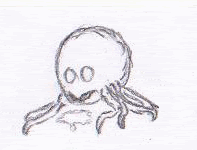Post by Charles on Mar 2, 2007 1:31:43 GMT 1
The rights to the novel itself are maintained by the H.G. Wells Estate wherever the basic copyright exists (such as the EU), but not the US. Paramount owns motion picture and televisual rights, Jeff Wayne owns all other dramatic rights (which are administered separately), but only in territories where the novel itself remains in copyright.
Actually the Artilleryman does have rather strong opinions, often mirroring those of Wells himself (at the time). Many of these ideas were explored more fully three years later in “Anticipations.”
The important thing to make clear is that Wells did not clutter the novel with names and personalities because he wanted readers to ‘read between the lines’ at the political, religious, sociological and scientific themes that drove him to begin writing scientific romances. On the other hand, the attention paid to geography and references to science – however incomplete, were there to lend the story realism. You don’t really need to know who all these people are to visualize the story, but locations that many readers would be familiar with gave the novel and its messages a sense of immediacy.
Biology is a focus of the novel, which is a sterling confirmation of Darwin’s natural selection. It comes down to the concept of adapt or perish.
Religious implications are obvious. Wells was a confirmed atheist by the time he began writing in the early ‘90s. He had a brief period of belief in God as a “Captain of mankind,” (never with religion) during the trauma of the First World War, but he later repudiated this phase. Through the Curate, Wells indicts his mother’s Calvinism and organized religion as a whole. Remember, the otherwise philosophical minded narrator only prays in times of desperation, madness and ironic false piety.
Social Darwinism was not a theme of TWOTW – Wells thought more broadly than that. Some are tempted to read SD into Martian imperialism, but ultimately even imperialism is not a focus of the novel and is treated with a certain irony.
The Martians are to be seen as an agent of social change. With relative ease they break down and sweep away the old order Wells detested, giving mankind an opportunity to reorganize his affairs more sensibly. But even Wells wasn’t optimistic about a fresh start to things as in the Epilogue he alludes to mankind becoming complacent again.
Even with their advanced technology and for whatever reason – they forgot or didn’t know to prepare for Earth’s smallest organisms - Martian immune systems were unable to adapt to their new environment, and they perished.
And because they were a bunch of sissies.
Actually the Artilleryman does have rather strong opinions, often mirroring those of Wells himself (at the time). Many of these ideas were explored more fully three years later in “Anticipations.”
The important thing to make clear is that Wells did not clutter the novel with names and personalities because he wanted readers to ‘read between the lines’ at the political, religious, sociological and scientific themes that drove him to begin writing scientific romances. On the other hand, the attention paid to geography and references to science – however incomplete, were there to lend the story realism. You don’t really need to know who all these people are to visualize the story, but locations that many readers would be familiar with gave the novel and its messages a sense of immediacy.
Biology is a focus of the novel, which is a sterling confirmation of Darwin’s natural selection. It comes down to the concept of adapt or perish.
Religious implications are obvious. Wells was a confirmed atheist by the time he began writing in the early ‘90s. He had a brief period of belief in God as a “Captain of mankind,” (never with religion) during the trauma of the First World War, but he later repudiated this phase. Through the Curate, Wells indicts his mother’s Calvinism and organized religion as a whole. Remember, the otherwise philosophical minded narrator only prays in times of desperation, madness and ironic false piety.
Social Darwinism was not a theme of TWOTW – Wells thought more broadly than that. Some are tempted to read SD into Martian imperialism, but ultimately even imperialism is not a focus of the novel and is treated with a certain irony.
The Martians are to be seen as an agent of social change. With relative ease they break down and sweep away the old order Wells detested, giving mankind an opportunity to reorganize his affairs more sensibly. But even Wells wasn’t optimistic about a fresh start to things as in the Epilogue he alludes to mankind becoming complacent again.
Even with their advanced technology and for whatever reason – they forgot or didn’t know to prepare for Earth’s smallest organisms - Martian immune systems were unable to adapt to their new environment, and they perished.
And because they were a bunch of sissies.









